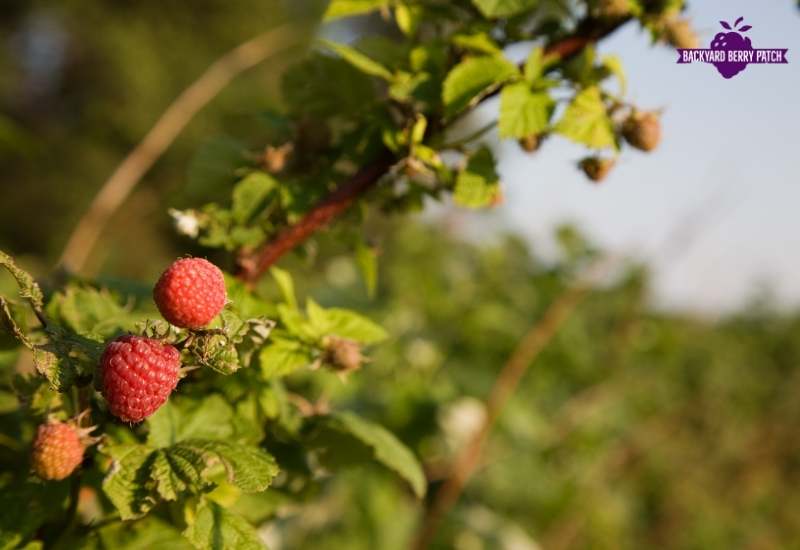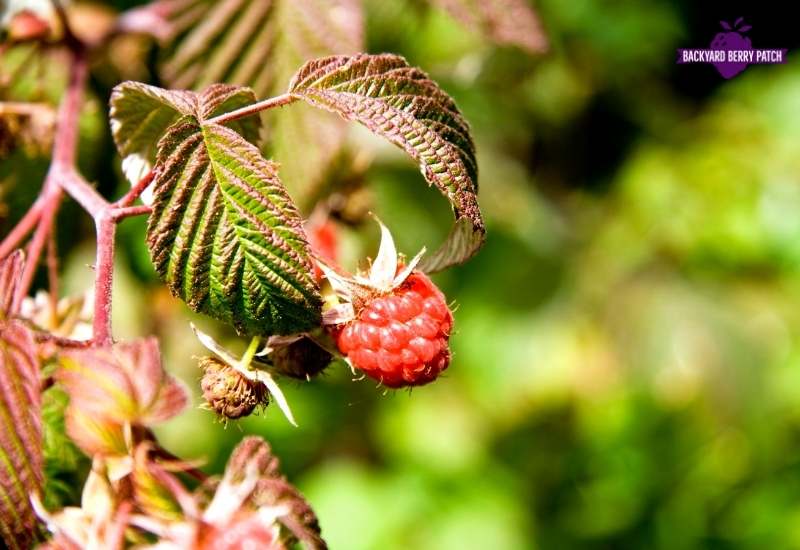Growing raspberries in New Jersey can be a fun and rewarding experience. These tasty berries are easy to grow and offer a heavy harvest with the right care.
You’ll find many raspberry varieties that thrive in the Garden State’s climate.
The best raspberries to grow in New Jersey include Heritage, Nova, and Latham varieties. These cultivars are well-suited to the state’s weather and soil conditions. They produce sweet, juicy berries that you’ll love snacking on straight from the bush.
When planting raspberries, choose a sunny location with well-draining soil.
You can start in early spring for a bountiful summer crop. Raspberries attract bees and other pollinators, which helps with fruit production and benefits your whole garden.
With proper care, you’ll enjoy a delicious harvest of homegrown berries year after year.
New Jersey Climate And Soil Overview
New Jersey has a climate that’s great for growing raspberries. You’ll find the state falls in hardiness zones 6a to 7b.
This means winters can get chilly, but many raspberry types can handle the cold.

The soil in New Jersey is often rich and well-draining. This is just what raspberries love!
If your soil is heavy or wet, don’t worry. You can mix in some compost or aged manure to make it better.
Here’s a quick list of what raspberries like:
- Well-drained soil
- Good air circulation
- Plenty of sun
In the summer, New Jersey can get hot and humid. This might cause problems like powdery mildew.
To help your plants, you can:
- Mulch around them
- Water at the base
- Prune for good air flow
If you have a small space, don’t let that stop you! Raspberries grow well in containers too.
You can even try vertical gardening with a trellis or fence.
Watch out for hungry visitors like deer and squirrels. They love raspberries as much as you do!
You might need to protect your plants with netting or fencing.
Recommended Thornless Raspberry Varieties In New Jersey
Are you looking for tasty raspberries without the prickles? You’re in luck! New Jersey gardeners have some great thornless options.
One popular choice is the Canby raspberry. This variety produces sweet, medium-sized red berries. You’ll love how easy they are to pick without getting scratched!
Another excellent option is the Joan J raspberry. This variety is everbearing, meaning you’ll get two harvests each year. Imagine enjoying fresh berries in both summer and fall!
For a unique twist, try the Fall Gold raspberry. As the name suggests, these berries are a beautiful golden color. They’re super sweet and perfect for fresh eating or baking.

Don’t forget about the Heritage raspberry. This self-fertile variety is a reliable producer. You’ll have plenty of berries for snacking, desserts, and sharing with friends.
When planting your thornless raspberries, space them about 2-3 feet apart. This gives them room to grow and makes harvesting easier.
Remember, most raspberries are self-fertile. But planting different varieties can lead to even better harvests. Mix and match to create your own berry paradise!
Recommended Thorny Raspberry Varieties In New Jersey
If you’re looking to grow raspberries in New Jersey, there are several thorny varieties that thrive in the Garden State’s climate. These plants produce delicious berries and can be a great addition to your garden.
One popular option is the Boyne raspberry. This summer-bearing variety is known for its hardiness and sweet flavor. You’ll enjoy picking these bright red berries in early to mid-summer.
Another excellent choice is the Killarney raspberry. This variety produces firm, flavorful berries and is resistant to many common diseases. Your plants will yield fruit on second-year canes, also called floricanes.
Don’t forget about black raspberries! These tasty berries have a unique flavor and grow well in New Jersey. They typically fruit a bit earlier than red varieties.
Here’s a quick comparison of these varieties:
| Variety | Type | Fruiting Season |
|---|---|---|
| Boyne | Red | Summer-bearing |
| Killarney | Red | Summer-bearing |
| Black | Black | Early summer |
When planting raspberries, remember that new canes (called primocanes) grow from the crown each year. These will become your fruit-bearing floricanes the following season.
To keep your raspberry patch healthy, remove old canes after they’ve finished fruiting. This makes room for new growth and helps prevent disease.
With proper care, your thorny raspberry plants will produce abundant harvests for years to come.

Leave a Reply